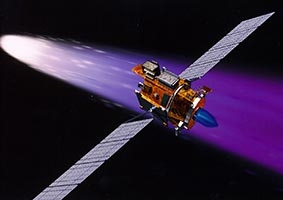What is Electrical Engineering?
"ALMOST every technology in modern life relies on electrical engineering in some way."

In medicine, it is through electrical engineering that doctors view images from inside the body, or control miniature tools and lasers during surgery.

When music is amplified, recorded, mixed, stored, played on machines, and heard through headsets, it is thanks to electrical engineering

Electrical engineers are involved in sensing and understanding signals from space and ocean exploration, as well as communicating and controlling the distant exploring machines.

Electrical engineers are typically the ones to put the "smart" in consumer goods--from cell phones and security alarms, to cars and robotic lawn mowers.
Working in the Invisible Realm
Electrical engineers work with energy (including electricity, light, sound, and electromagnetic fields) and intelligence (algorithms, data, simulation, modeling, control). Although many of these phenomena are invisible, they extend the capabilities of modern life.
From the Microscopic to the Sublime
EE's develop the tools and techniques to sense, measure, convert, transmit, control, and receive energy and intelligence. In doing this, EE's work on projects as small as mosquito-sized robots, to controlling massive, million-mile structures, such as the nation's power grid.
Versatile
EE's work closely with experts in many fields, including materials, chemistry, biology, medicine, physics, and other engineering disciplines. During a career, a single EE can work on remote sensing equipment to measure hurricanes, work on satellite communications, help improve the fuel efficiency of industrial engines, determine an algorithm to speed up a steel plant, and develop methods to protect the hearing of people working near jet engines.
Careers
Electrical engineering graduates are typically among those with the highest starting salaries. As EE has grown essential to more and more industries, career options have blossomed.
EE's can work in product development, product testing, system management, sales, and consulting in industries including amusements, wireless communication, consumer electronics, power, transportation, manufacturing, automotive, chemical, pharmaceutical, defense and more. EE's have the option of staying in technical jobs or moving into administration and management. Some EE's become lawyers, doctors, and teachers. Some start their own firms.
See Also:
The EE Course of Study
Find out more about the EE curriculum -- read the curriculum planning sheet for EE majors.
Want more career info on electrical engineering?
Visit the electrical engineering career pages hosted by the Sloan Foundation, with data provided by the IEEE, The Institute of Electrical & Electronics Engineers.
See the U.S. Dept. of Labor information on electrical and electronic engineering jobs and careers.
Also, visit the website for the professional society for electrical and computer engineering, the IEEE.
Women in ECE
Engineer Your Life has information about women in electrical and computer engineering. If you're a young woman considering the study of EE or CPE, you might be interested in reading a profile of NASA engineer Ayanna Howard.
Interested in other stories of other female engineers? Find out about Tara Teich, who is currently working on Star Wars video games for LucasArts, and Shaundra Daily, an EE who is developing emotion-reading software at MIT's Media Lab.


